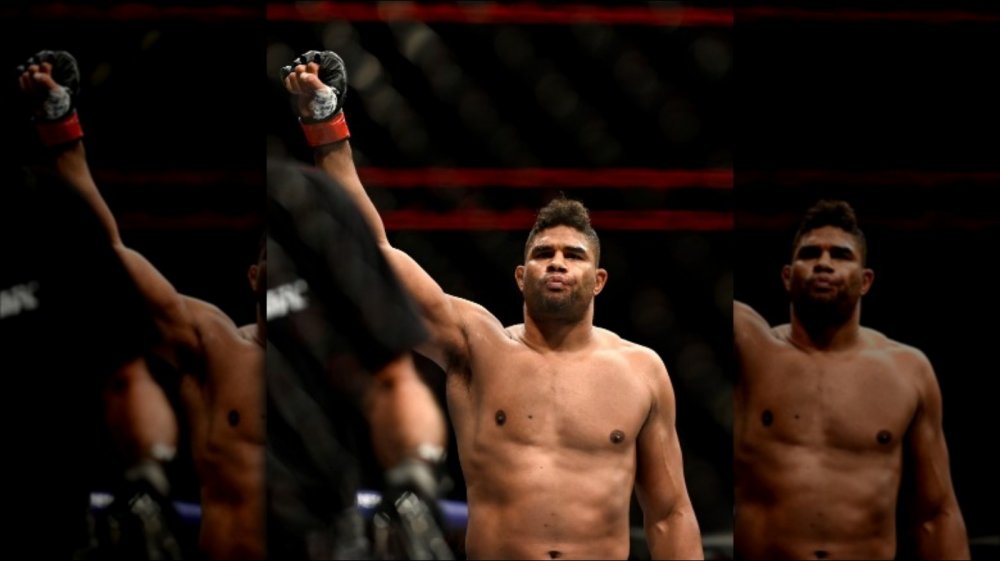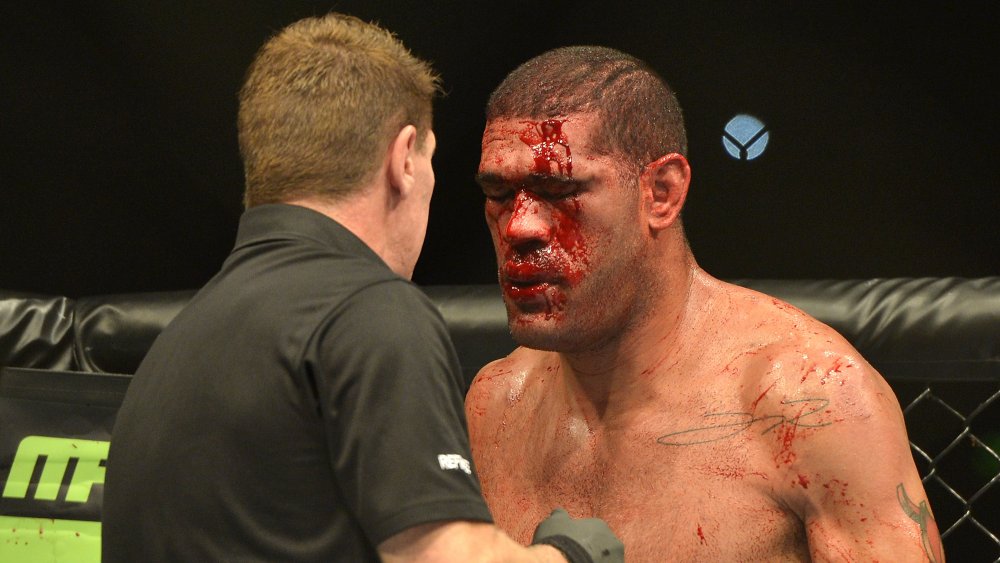What The MMA Has Proven About Heavier Fighters
MMA allows fighters to train in whatever discipline they want and fight with a myriad of styles that keep viewers pawning their stereos to afford the pay-per-view specials. Two fighters, male or female, sweaty and rolling around or the ground while they beat each other's brains out. It's like boxing with hugging. Okay, it's only a little like boxing.
In the early years of MMA, it was common to have two fighters in the cage of broadly differing sizes. They didn't have weight classes and fights were determined by skill. The majority of fighters were human-sized, but a few of them dwarfed some pro linemen. These days, as 12 Up explains, the weight classes in most leagues prevent fighters from tangoing with someone more than 20 pounds heavier than they are. Some heavyweight fights have wider gaps, but a 50-pound difference when both fighters weigh over 300 pounds isn't that big of a deal. Though it turns out, historically, one opponent being much larger than the other has an interesting outcome.
The bigger guy tends to lose
As correct as it is counter-intuitive, the bigger fighter has a history of losing. Now, we're not talking about a few-pound difference where, in reality, the fighters weigh pretty much the same. We're talking about large weight gaps, one fighter being monumentally bigger than the other. That's when our idea of physics gets turned inside out. After all, if a semi and a car collide on the freeway, is the car not crushed? When a bulldozer hits a much larger bulldozer at 70 miles per hour who reaches Kentucky first? In all of the following fights, the victor was much smaller than the loser: Gerard Gordeau vs. Teila Tuli, Akebono vs. Royce Gracie, Thomas Ramirez vs. Don Frye, and others on YouTube.
No one's not quite sure why this happens, but as Cracked explains, there are few factors that might help shine a light on how a guy can take out another guy twice his size with relative ease. First, bigger guys don't typically move as well. They have bigger bodies that cause their footwork to be slower, their standups to be slower, and their arm movements to be — you guessed it — slower. Second, bigger guys get tired faster. Again, bigger bodies make everything more work, giving the smaller guy an advantage. Sure, bigger guys can take more punishment to the body, but brains get knocked out like everyone else's.

